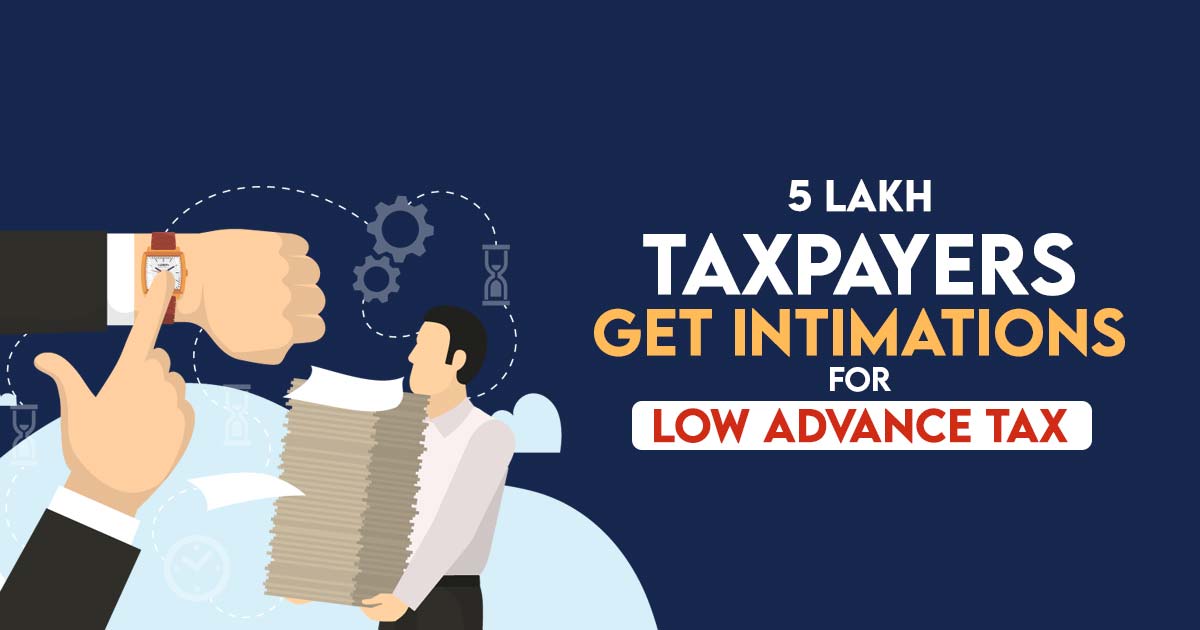
Between April and August this year, around 500,000 taxpayers received intimations from the Income Tax department regarding their advance tax payments. The notifications were related to either zero or lower advance tax payments.
After reviewing the significant transaction data for the former fiscal year and the first quarter of the current financial year the council has furnished these intimations.
The department’s analysis identified approximately 2.5 million cases in FY23 where taxpayers with substantial income and significant expenditures either made minimal or no advance tax payments.
In some instances, the advance tax payment during the first quarter of the current financial year (April-June), taxpayers filed lower taxes compared to their high-value purchases, indicating a discrepancy, according to an official familiar with the situation. This action is taken in anticipation of the second instalment of advance tax due on September 15.
Sources have revealed that the number of taxpayers evading advance tax payments has seen a significant increase over the past three to four years, and such measures will serve as a deterrent against non-compliance by taxpayers.
Important: How to Reply Income Tax Compliance Notices? (Easy Guide)
Advance taxes are divided into four installments June, September, December, and March. These payments are based on taxpayers’ estimates of their future income and provide insight into the potential tax collection in the upcoming months.
Typically, 15% of the tax obligation is paid in June, followed by 45% in September, 75% in December, and the full payment in March. The government is looking at plugging leaks in direct taxes since gross tax collection increased by only 2.8% from April to July but net revenue shrank by over 13%.
This does two things: it pushes relevant taxpayers to pay taxes owed in a timely manner and accelerates tax receipts for the government during the fiscal year.
After reviewing pertinent data regarding high-value purchases, the revenue department may be able to estimate the taxable income associated with purchases linked to Permanent Account Numbers (PANs). In situations where the revenue department identifies that a taxpayer has made a notably low advance tax payment in the first instalment, which is due on June 15, they may send notifications to these taxpayers as a gentle reminder to ensure timely and accurate advance tax payments.
Some of the individuals receiving these notifications include taxpayers who earned substantial income in the fiscal year 2023 in sectors such as pharmaceuticals, healthcare, and chemicals. However, their projected income appeared comparatively lower, and even the initial instalment payment was inadequate.
Additionally, notifications are also being sent to taxpayers who generated significant profits in the stock market during the previous year and acquired high-value immovable assets and vehicles. This underscores a potential mismatch between their income and investment levels.
A weaker rupee, inflation, high interest costs, and overall high costs are the factors that result in lower than approximate income for the fiscal year.
The IT heads are on the drive of data asking via routes of internal data processing (defined financial transactions/annual information statement/tax information statement) based on Permanent Account Numbers (PANs), which confirms that the assessee must not underreport their income in filing the tax.
The term “significant transaction” refers to a transaction that involves the purchase of goods worth lakhs of rupees, a stated turnover of ten crores, the purchase or sale of immovable, a cash withdrawal from a bank or post office of more than twenty lakh rupees, a credit card payment of more than ten lakh rupees, and other similar transactions.








